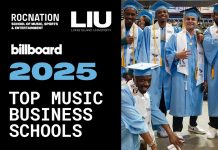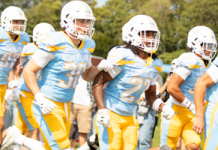Loida Garcia-Febo, president of the American Library Association (ALA), which represents more than 120,000 libraries in the United States, delivered an inspiring Hutton House Lecture at LIU Post’s Lorber Hall on Jan. 14 about the challenges facing public libraries today.
Last year Garcia-Febo became president of the ALA, the oldest and largest library association in the world. As an international library consultant, she has travelled the globe, talking about the vital role librarians must play in a changing world. The theme of her talk was that public libraries equal strong communities.
“In some parts of the country, public libraries provide the only access to information for some underrepresented, marginalized, or most vulnerable communities,” she explained. “Today, getting information is easy as we know, but getting the right information can be difficult. That’s how libraries can help people navigating the information jungle.”
She said that libraries can provide an inclusive environment “where all are treated with respect and dignity.” Sometimes, she added, the library patrons’ requests for information may go beyond a simple reference question and include pleas for essential services like where to find hot meals, showers, shelters or even good medical care for pregnant women. It’s all part of the functions that American libraries have in society today since they serve as “the bastions of democracy,” she noted, providing access to intellectual freedom, promoting diversity and serving the public good.
“Those are parts of our core values at ALA,” she said with pride. “Libraries play a critical role in leveling the playing field and helping all members of the community find the resources they need to better their lives through education.
“Our efforts can have a domino effect, going from impacting our local area to the city to the region to the country and the world,” said Garcia-Febo, adding that providing access to information can become a tool for empowerment.
Sometimes libraries are so in touch with their communities’ needs they’ll lend ukuleles, fishing poles and knitting needles, as well as offer “drawers and drawers of neckties,” she said with a smile. Some libraries host resume-writing workshops. A public library in Oregon partners with local wildlife groups to lead nature tours.
“The examples I shared confirm my belief that libraries equal strong communities,” she said. “But we can’t take our resources for granted.”
Public libraries are alive and well in the age of Amazon, she insisted, “because librarians are the ones who can direct us to accurate information—they can direct us to the truth.”
Garcia-Fedo, who is currently pursuing the Ph.D. in Information Studies program at LIU’s Palmer School of Library and Information Science, expressed her hope for the future.
“Libraries are—and will always be—about the people: what they need and how we can help them find it,” she said.
![loida-garcia-febo-e1535517083491[1]](https://headlines.liu.edu/wp-content/uploads/2019/01/loida-garcia-febo-e15355170834911.jpg)


